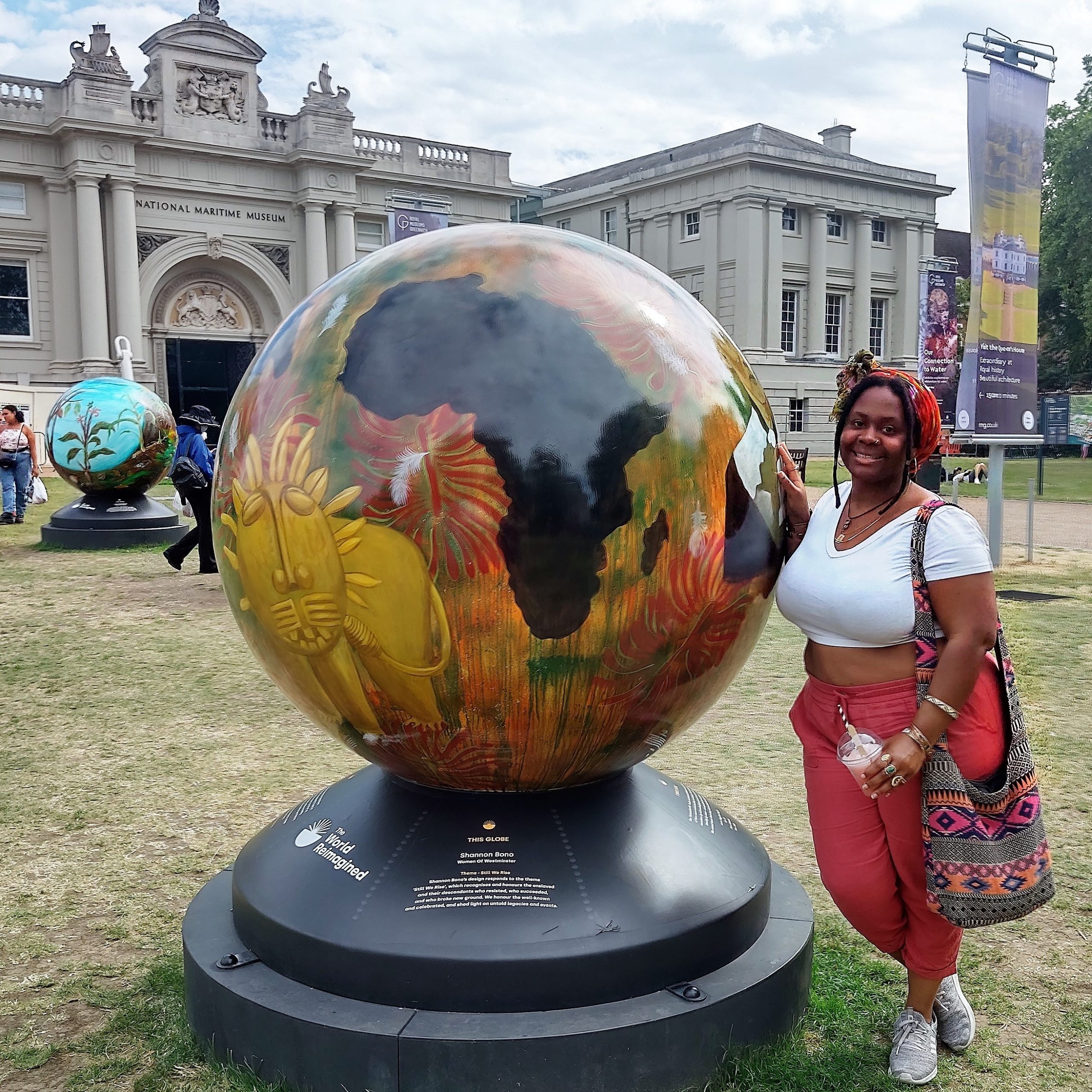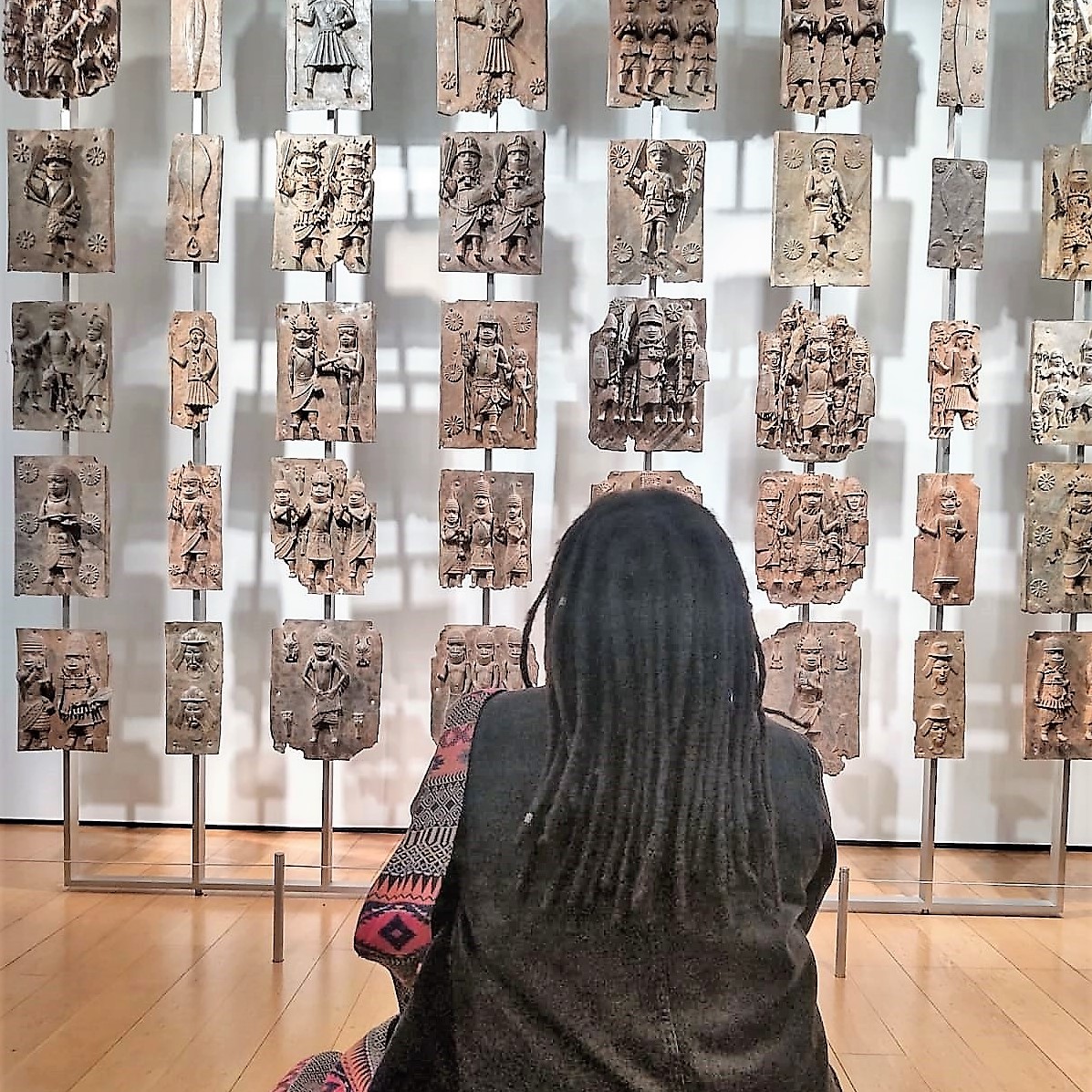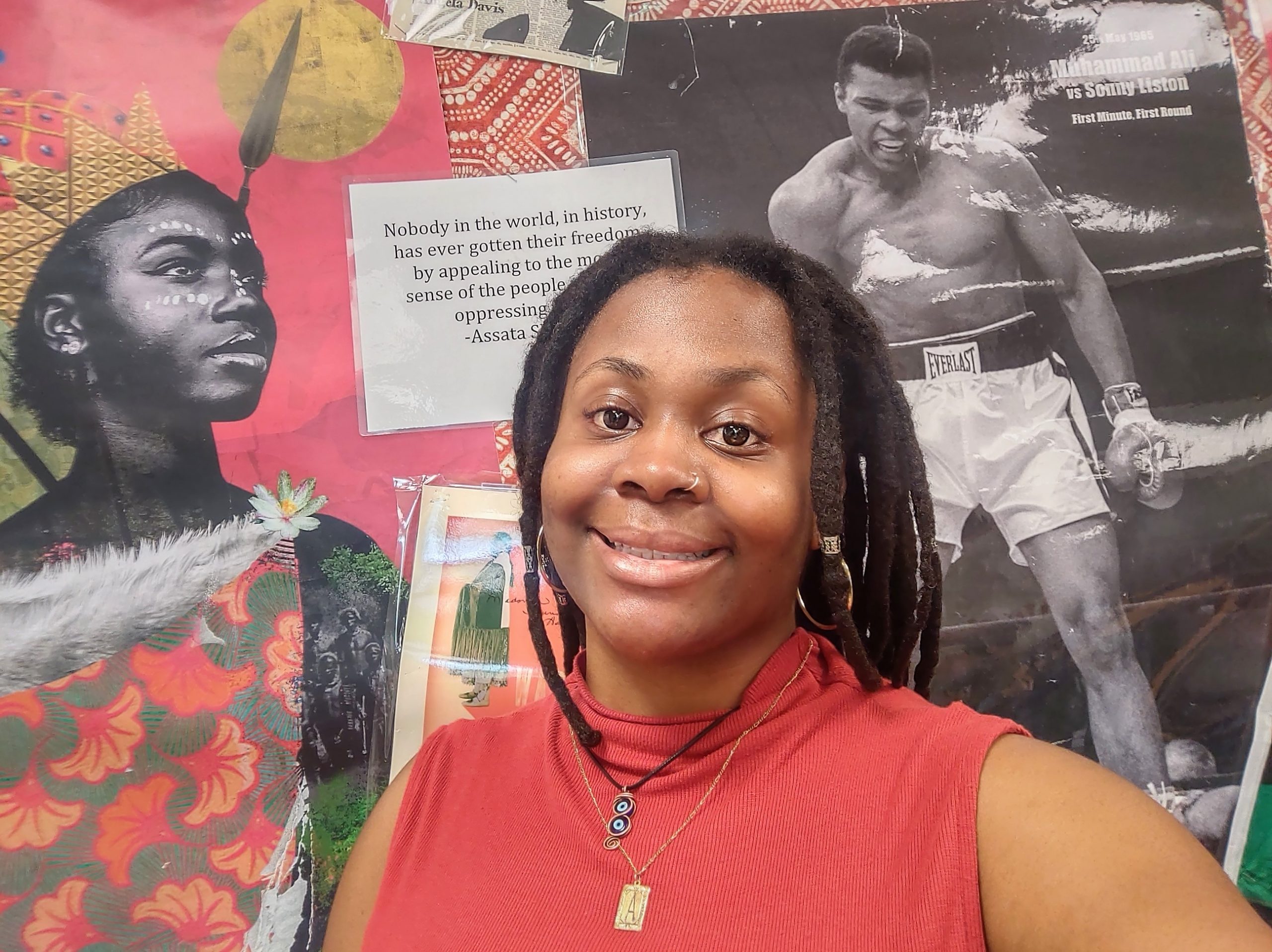Celebrating Black History Month
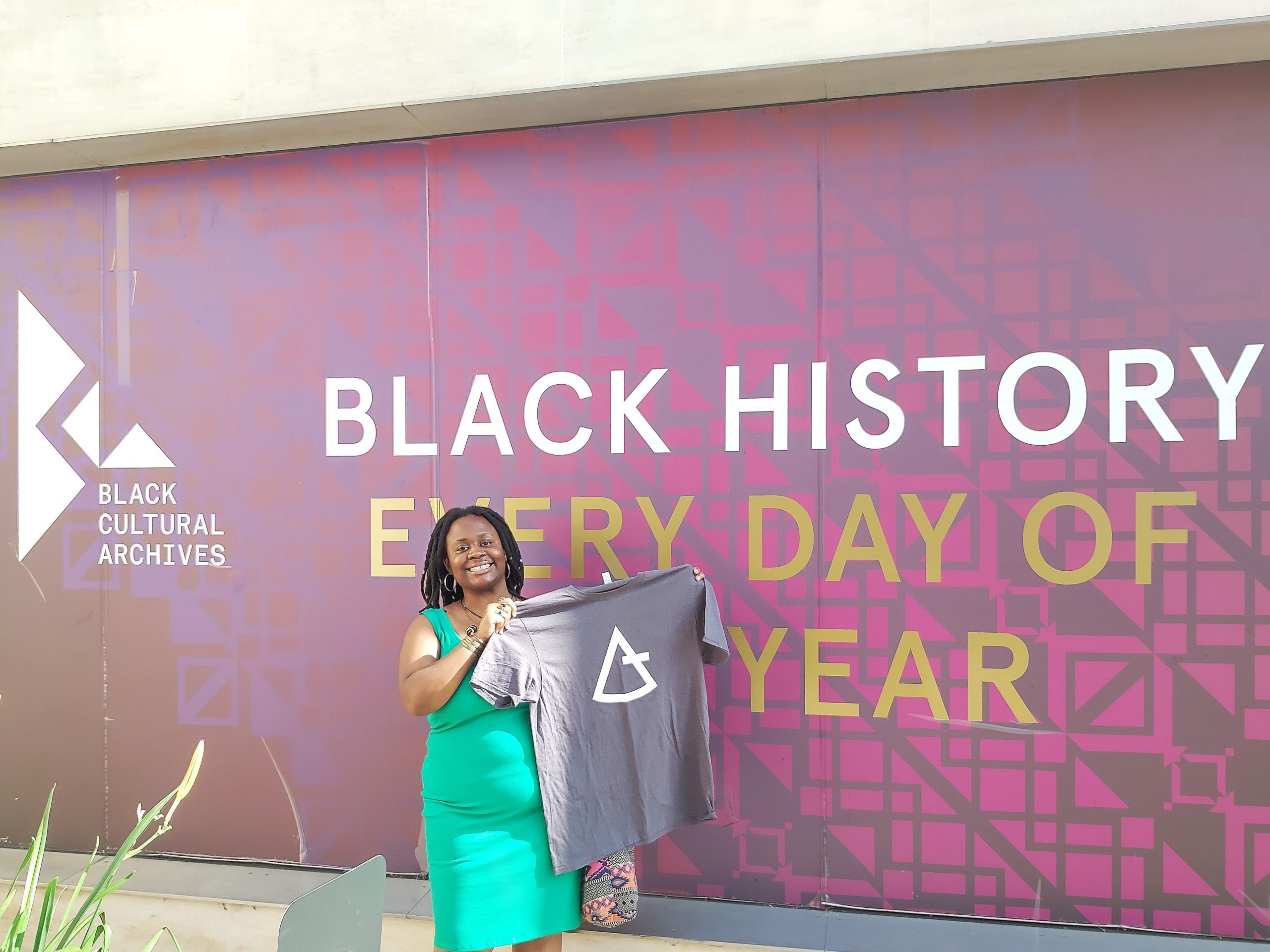
Tasked with developing and implementing an African American history course in keeping with Virginia governor’s executive order, FFT Fellow Ariel Alford (Alexandria, VA) leveraged a Fund for Teachers fellowship to build content and context knowledge. The following is her account of exploring British Black History last summer and why that matters to her African American History students.
“On August 24th, 2019 at Old Point Comfort, the site where the first enslaved Africans arrived in Virginia over 400 years ago, Governor Ralph Northam signed Executive Order Thirty Nine and announced the establishment of the Virginia African American History Education Commission. One of the Governor’s many charges to the Commission was to thoroughly examine Virginia’s K-12 curricula and make recommendations for improving the way African American history is taught in Virginia schools. The Commission found that the social studies standards presented a master narrative that erases the presence of non-Europeans from the American landscape and Virginia’s Social Studies Standards of Learning were deemed incomplete with regards to the inclusion of African American.
In light of this research, the Virginia African American History Commission was tasked with:
- ensuring that the standards were more inclusive of African American history;
- providing opportunities for students to deeply engage with the content, drawing connections to its relevance in our contemporary communities: and,
- overseeing the development of the first African American history course ever offered in the state of Virginia.
Impacting the Present
In the Summer of 2021, I was selected to join a curriculum project team and assist in the course development and implementation of a 9-12 African American History elective course within my district’s secondary schools for the 2021-2022 inaugural school year. Within this team, I was tasked with creating and revising course themes, yearlong pacing guide, unit guides, unit objectives, and driving essential questions.
I’ve taught this course from its inaugural year until the present. In these three years I have personally witnessed parents and students share their disappointment at the lack of intentional and progressive inclusion of African American history and global African Diasporic history throughout their K-12 journey. Too often when the content is presented it focuses exclusively and poorly on slavery, suffering and trauma. Students deserve opportunities to confront this “hard history” through various lens – including agency, resistance, and culture.
Therefore, when given the opportunity to propose a Fund for Teachers fellowship centered in students’ interests and culture, my focus was clear. I wanted to continue my commitment to engaging the African Diaspora and exposing my students to the connected diversity within it.
Using a $3,000 grant, I explored significant cultural and historical sites throughout London and other boroughs to document Black British history, with a focus on cross-cultural connections with African Americans during the Civil Rights era and modern social justice movements.
- BCA is the only Black History museum in the United Kingdom
- The World Reimagined was an outdoor exhibit featuring 36 giant globes
- I sat in the British Museum and pondered the cultural plundering suffered by African people
Walking Through The Past
Because my current curriculum covers five overarching themes of the African American history course (Agency, Culture & Innovation, Memory, Power, and Resistance), I designed my fellowship to support those themes as well – examples included visiting the Black Cultural Archives in Brixton, The Museum of London Docklands oral history project, and engaging Black History Walks walking tours led by Tony Warner.
What I found most affirming about these experiences was listening to and learning from community leaders who have an unwavering commitment to justice, liberation, and self-determination. From the Black Parents Movement, British Black Panther Party, Speakers Corner in Hyde Park (Docklands), or the hidden Black history in Regents Canal (Black History Walks) I was privileged to witness the preservation of African Diasporic history and culture in real-time.
One of the most formative aspects of the fellowship was developing a partnership with Charles Golding and Lawrence Hoo, founders of the CARGO Movement and its CARGO Classroom initiative. CARGO Classroom and others are leading the charge to elevate Black History education throughout the United Kingdom by building curriculum and resources teachers need to engage African Diasporic history in meaningful ways.
Awakening the Future
This month, as a member of the DC Area Educators for Social Justice, my students are participating in the 2024 Black Lives Matter: Week of Action campaign promoting a set of national demands based in 13 guiding principles that focus on liberation and racial justice in education for youth, educators, and communities. I was able to share my 2024 plans and its connection to my FFT fellowship during our annual BLM @ School Curriculum Fair in mid-January.
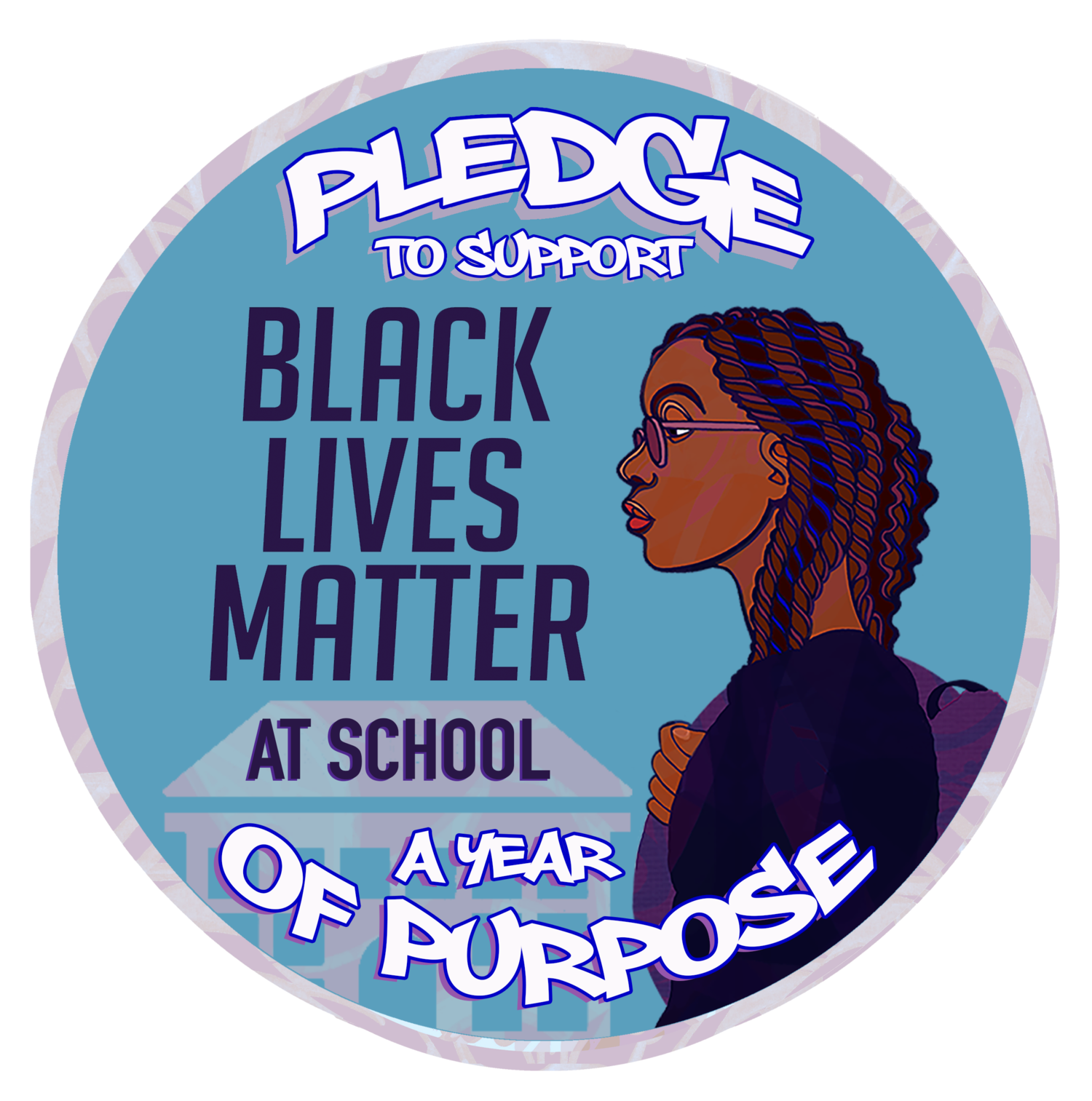 For the 2024 week of action, my students and I will focus on principle five Globalism (Globalism: We see ourselves as part of the global Black family and we are aware of the different ways we are impacted or privileged as Black folk who exist in different parts of the world.) to explore the African Diaspora. In connection with my summer fellowship, students will focus on the Black led movement in the UK throughout the 1960s and 70s, analyzing the similarities, differences, and connections between similar Black led movements in the US.
For the 2024 week of action, my students and I will focus on principle five Globalism (Globalism: We see ourselves as part of the global Black family and we are aware of the different ways we are impacted or privileged as Black folk who exist in different parts of the world.) to explore the African Diaspora. In connection with my summer fellowship, students will focus on the Black led movement in the UK throughout the 1960s and 70s, analyzing the similarities, differences, and connections between similar Black led movements in the US.
Additionally, students will have the unique opportunity to participate in a virtual workshop with Charles and Lawrence (CARGO Movement) to learn about contemporary issues and movements impacting Black/Afro-Diasporic communities in the UK, preview new digital content from CARGO classroom, and engage in a Q&A session about various topics.
My passion for the holistic development of young people and positive elevation of the African Diaspora are coupled as I continue to seek out innovative experiences for my students. I believe in Dr. John Henrik Clarke’s quote:
“History tells a people where they’ve been, what they’ve been, where they are and what they are. Most importantly, history tells a people where they still must go, what they still must be.”
I am grateful for the role my Fund for Teachers fellowship plays and will continue to play in how I live out this purpose.
For more:
- Access troves of varied and in-depth learning curated by the Smithsonian National Museum of African American History and Culture.
- Watch FFT Fellow Brian Scannell (Ghent, NY) share about how attending a workshop on radical nonviolence sponsored by The International Center for Nonviolence and Peace Studies informed a student field trip from upstate New York through the Deep South to coincide with MLK Day last month.
- Listen to FFT Fellow Pratia Jordan (Houston) reflect on her fellowship researching the Transatlantic Slave Trade through historical sites in Europe, Africa and North America to teach students that their history didn’t start or end with slavery.
 Back to Blogs
Back to Blogs

